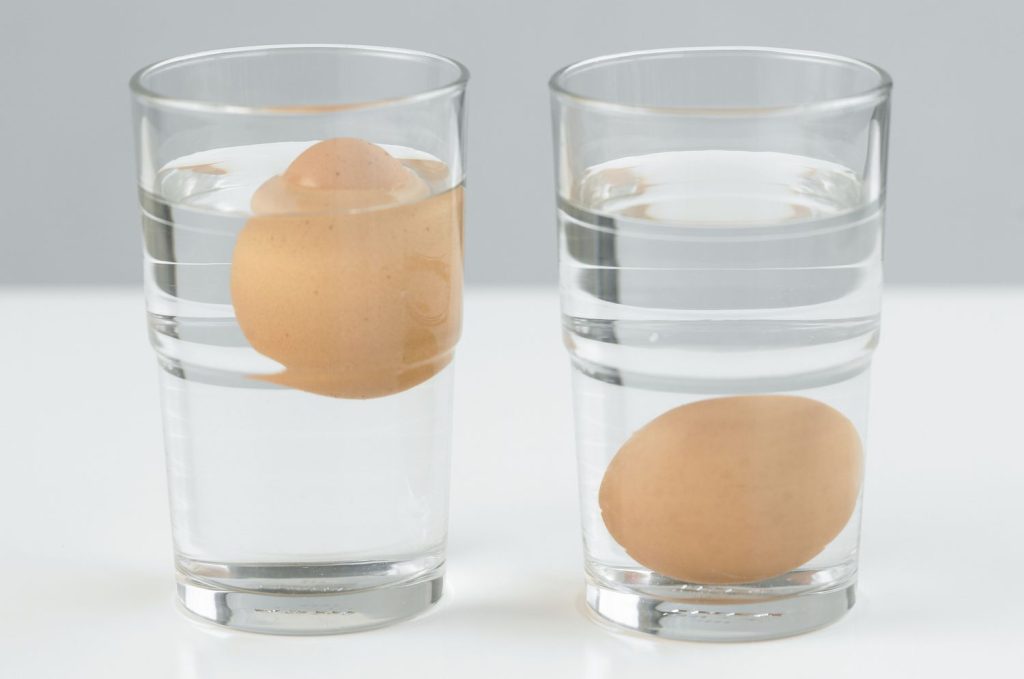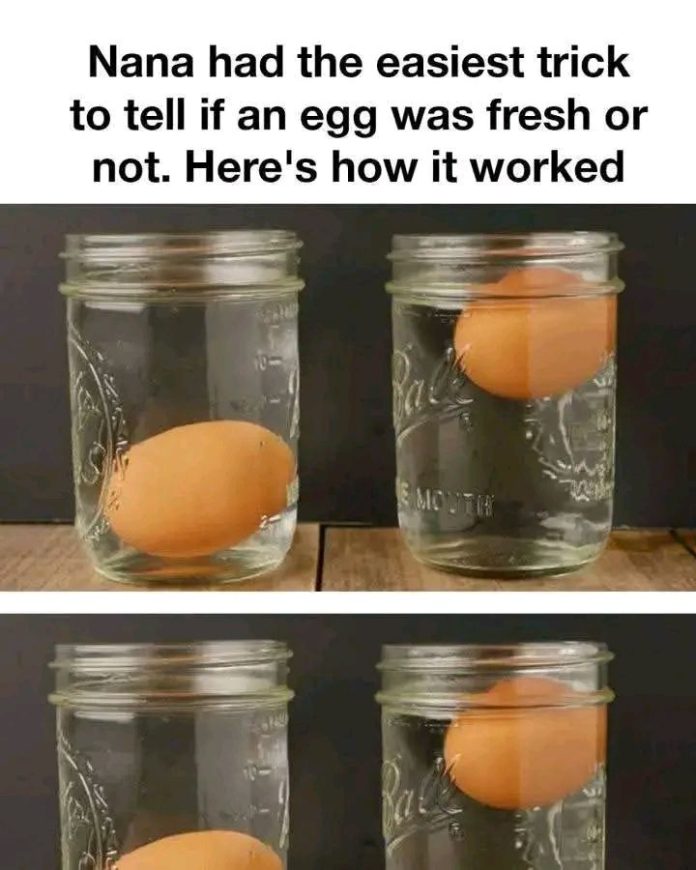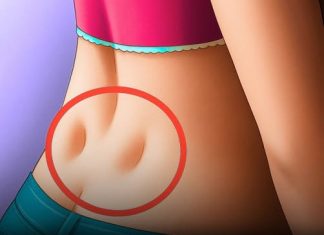In a time when convenience often trumps tradition, many of us rely on supermarket packaging and expiry dates to determine the freshness of our food. But when it comes to eggs, one of the most commonly consumed and versatile ingredients in the kitchen, freshness isn’t just about flavor—it’s also about safety. While labels might offer a general idea, they don’t always tell the whole story. That’s why simple, old-fashioned techniques like the one passed down by Nana are making a comeback.
This article explores why egg freshness matters, how you can easily test it using Nana’s water method, and how it compares with other techniques. Whether you’re a home cook, baker, or just someone who likes their eggs in the morning, this trick will become a staple in your kitchen routine.

Why Egg Freshness Matters More Than You Think
Fresh eggs are not just tastier—they’re safer and better for cooking. In baking, they yield fluffier cakes and more stable meringues. In frying, they hold their shape better, and in boiling, they peel more cleanly. But more importantly, using fresh eggs helps avoid foodborne illnesses, such as salmonella, which can occur from consuming spoiled or improperly stored eggs.
As eggs age, their texture, color, and even smell can change. The yolk becomes flatter, the white becomes runnier, and their performance in recipes can significantly decline. That’s why knowing how to test eggs without relying solely on printed dates is essential.
Nana’s Water Trick: A Simple Test That Works
The brilliance of Nana’s method lies in its simplicity and accuracy. You don’t need any fancy gadgets, test kits, or advanced culinary training—just a bowl of water.
Here’s How to Perform the Test:
Fill a bowl or glass with cold water—deep enough to fully submerge an egg.
Gently place the egg into the water.
Watch how the egg behaves:
- Lays flat on the bottom – Extremely fresh.
- Sinks but stands upright – Still good, but use soon.
- Floats to the top – Not fresh; best to discard.
This test uses a natural process: as an egg ages, the air cell inside it expands. The more air inside, the more buoyant it becomes—eventually causing it to float.
Why It Works: The Science Behind the Trick
An egg’s shell may seem solid, but it’s actually porous, allowing air and moisture to move in and out. Over time, moisture evaporates and air seeps in, increasing the size of the air cell. This not only affects the egg’s buoyancy but also indicates internal changes in the egg’s texture and quality.
So, when you see an egg floating, it means it’s older and has a larger air pocket. While not all floating eggs are necessarily rotten, they’re no longer at their best—and consuming them becomes riskier.
Although Nana’s water test is among the easiest and most accessible, there are a few other ways people check egg quality:
- Candling – Shining a light behind the egg to view the inside. Common in farms, but not practical for most homes.
- Crack-and-Sniff – Crack the egg and smell it. A strong, sulfur-like odor means it’s gone bad.
- Yolk and White Test – Crack the egg onto a plate. A fresh egg will have a tall, firm yolk and thick whites that don’t spread much.
- Shake Test – Shake the egg gently next to your ear. If you hear a sloshing sound, it’s likely older.
Still, these tests either require experience or tools. Nana’s float test stands out because anyone can do it in seconds—no light bulbs or sniff tests required.
Busting Common Egg Freshness Myths
Let’s clear up a few misunderstandings:
“A cloudy white means it’s bad.”
Wrong! In fact, cloudy whites indicate freshness. They become clearer as the egg ages.
“A blood spot means it’s rotten.”
Also false. Blood spots are natural and safe to eat.
“Cracked eggs should always be thrown away.”
Not necessarily. If a crack is recent and the egg was refrigerated, it may still be safe—though caution is advised.
Understanding these facts helps you avoid waste and use eggs more confidently.

Frequently Asked Questions
- 1. How long do eggs last in the fridge?
Most eggs remain fresh for 3 to 5 weeks when properly refrigerated. - 2. Can I eat eggs past the expiry date?
Yes—if they pass the float test. Expiry dates are often conservative. - 3. Should I wash eggs before storing them?
No. Washing can remove the protective coating and let bacteria in. Only wash right before use. - 4. Can I freeze eggs?
Yes, but not in the shell. Crack and store in an airtight container or ice cube tray.
Final Thoughts: Trust in Nana’s Timeless Wisdom
Nana’s water test isn’t just a quirky kitchen tip—it’s a proven and practical way to ensure your eggs are fresh. In an era of digital apps and barcode scanning, sometimes the simplest methods are the most reliable.
Whether you’re making breakfast, baking a cake, or preparing homemade pasta, knowing your eggs are fresh adds peace of mind. So next time you’re unsure about that carton of eggs in the fridge, grab a bowl of water and let Nana’s wisdom guide you.
Because some tricks, no matter how old, never go out of style.

















